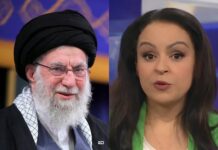By Lakshay Kumar Chowdhury
Rashtriya Swayamsevak Sangh (RSS). We’ve all heard about it. We can muster up enough words to speak for a couple of minutes if ever it comes up for discussion. But that’s the thing, isn’t it? How many times does the Sangh actually come up in the countless debates on Modi vs Rahul (seriously?) vs Kejriwal? You know the answer, and now you’re uncomfortable. A right wing, paramilitary, volunteer Hindu Nationalist group, RSS states that its ideology is based on the principle of selfless service to the nation.
It has been observed in the recent years that the RSS has been actively participating in the activities other than mentioned in its constitution.
Projection of Narendra Modi
RSS has played a critical part in the declaration of Mr. Narendra Modi as the BJP’s Prime Ministerial candidate. It was the backing of RSS that forced Mr. Rajnath Singh to take such a bold step, fully knowing the consequences, and suffice to say, we can agree that it was a wise decision. The main point of discussion is not the move but the backstage force behind the move. The consequences of this decision have been evident in the form of separation of JDU from the NDA.
In fact, I would go to the extent of declaring that the forthcoming Lok Sabha elections are not about Narendra Modi but about the Rashtriya Swayamsevak Sangh (RSS). The contest is not between individuals, but ideologies; those of the Congress and those of the Sangh Parivar. Narendra Modi’s choice as the BJP’s candidate for prime minister has been brought about with the active intervention of the RSS chief, who interceded with the BJP’s senior-most leader, L K Advani, to cease active opposition to that choice.
But the picture is not as clear as it appears to be. RSS and Modi — even though he was a product of the Sangh— haven’t shared the best of equations in the past. Modi, during his past two tenures in Gujarat successfully sidelined Sangh influence in the state, a former stronghold, and made sure that only his writ ran there.
Sangh insiders say that the decision to back Modi was arrived at after a long period of soul searching and some pretty risky moves on the Parivar chess boards. Ultimately, Modi’s popularity and the Sangh’s own feedback from its pranth pracharak swung it.
Secondly, it also faced up to bitter truths about its own future which seemed inextricably tied with BJP’s electoral success. RSS has been active from the time before independence but it has been not been able to convince and educate people about its ideology.
A few political pundits even hold the opinion that that the involvement of RSS in the BJP’s area of interest is a threat to BJP itself because RSS seems to be all set to spread its tentacles into mainstream politics. Either RSS should amend its constitution or stay away from political activities. There are lines that should never be crossed and BJP should be cautious about these lines.


































